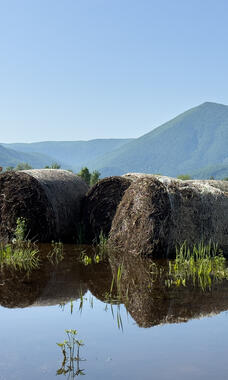For Immediate Release: July 12, 2024 Media Contact: Ben Truman │ Department of Health 802-316-2117 │ 802-863-7280 [email protected] Health Department Resources and Guidance for Safe Flood Recovery HealthVermont.gov/Flood WATERBURY, VT – As people throughout Vermont begin recovery from yet another...
Water contaminated with bacteria can make you sick. Learn how to disinfect your water before using it for drinking or cooking.
If you get your drinking water from a private well or spring, test it regularly to make sure your water is safe to drink. Find out what you should test your drinking water for and how often.
If your drinking water test results show your water is contaminated, you’ll need to treat your water. Find out which drinking water treatment system will work best for your home.
What You Need to Know About Hydrogen Sulfide in Drinking Water Hydrogen sulfide gas can occur in wells anywhere in Vermont and gives the water a characteristic "rotten egg" taste or smell. Hydrogen sulfide gas or sulfur bacteria in your...
Air Quality in Your Home Did you know that we spend about 90% of our time indoors? Air pollution indoors can be as high, and sometimes higher, than outdoor levels. The quality of the air you breathe can affect your...
What You Need to Know About Iron in Drinking Water Iron is a metal found naturally in the Earth’s crust, which means it can be found in your well or spring water.
What You Need to Know About Lead in Drinking Water Lead is a highly toxic metal. Lead can be found in both public water systems (town and city) and private water systems (wells and springs), in household plumbing, and in...
What You Need to Know About Manganese in Drinking Water Manganese is a metal found naturally in the Earth's crust, which means it can be found in your well or spring water. It is an essential nutrient for the human...
The Environmental Protection Agency (EPA) requires that public water systems use chlorine for disinfection at the water treatment facility.

